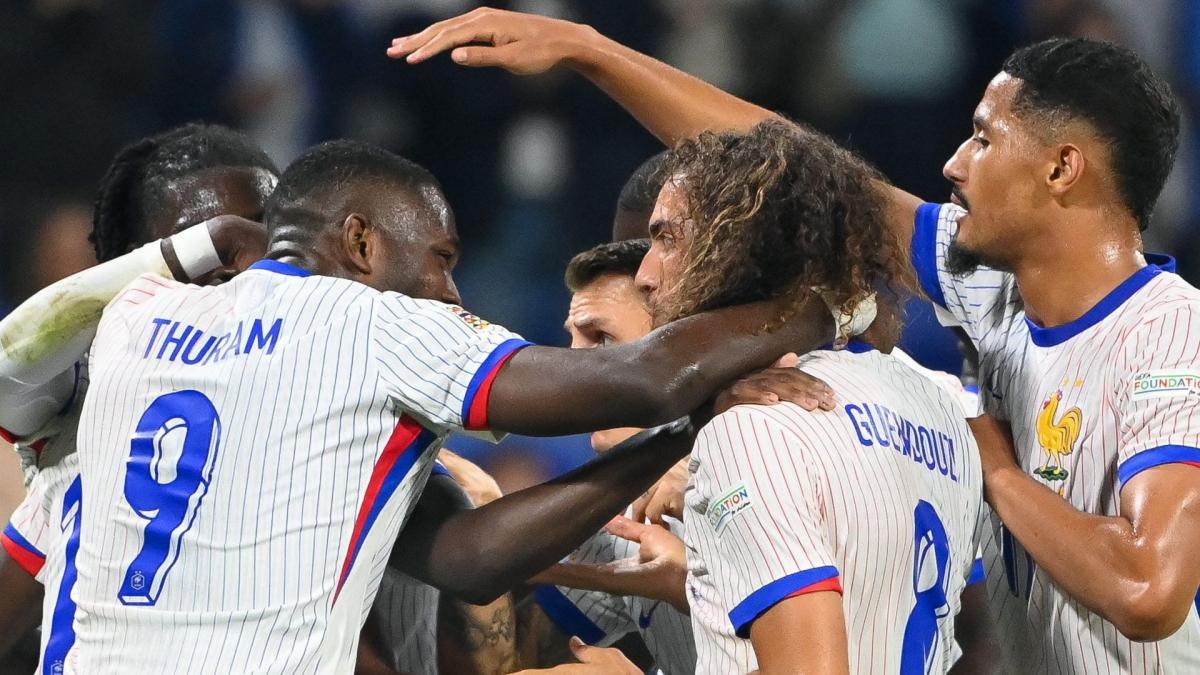This afternoon, Didier Deschamps will appear at a press conference with his new captain. In the absence of Kylian Mbappé and Aurélien Tchouameni, who wore the armband last month, it is a priori N’Golo Kanté that the coach should give this mission. The Al-Ittihad midfielder, who is renowned for being discreet and shy, will have to carry out the famous exercise of the pre-match press conference. And this task will not necessarily be easy for him, especially since he will have to discuss the meeting against Israel. A thorny, even burning, subject due to the current conflict with Palestine. Questioned at a press conference yesterday, Dayot Upamecano spoke about the holding of this controversial meeting.
Law enforcement officers mobilized
“I can understand why people don’t want to come. It’s their choice. We are going to fight on the pitch and win this match. Yesterday (Monday, editor’s note) was November 11. I love peace and I hope that one day we will find it again, in every country. Whatever our religion or where we come from, we want peace.” The new kid, Lucas Chevalier, was also questioned on the subject.“We are obviously aware of what is happening around us. We’re going to try to pretend it’s a normal match but deep down, it’s not really. We remain football players, there is a sporting objective in this group. We are aware of the stakes but we are in our profession.”
A few hours later, it was Philippe Diallo’s turn to discuss this meeting in the columns of Parisian. The president of the FFF assured that it was unthinkable for the federation to relocate this meeting and that it was important for it to play at the Stade de France. An enclosure which will be monitored very closely since this match is classified as very high risk. The Team also reveals that 4,000 police officers were mobilized to ensure the security of the two nations and the 20,000 supporters expected this Thursday evening. But the Paris Police Prefecture must also manage everything that happens around the match, in particular the organization of a rally against the France-Israel match tomorrow at 6 p.m. in front of the Saint-Denis Town Hall.
An Israeli selection closely monitored
Supported by La France Insoumise, this static demonstration poses a problem for the authorities since it would take place a few kilometers from the stadium. The sports daily specifies that the police forces are studying the possibility of relocating this gathering elsewhere. At the same time, the authorities are also concerned about the protection of Israel fans. They fear that they will be attacked on the way to the stadium or that they will suffer the same fate as the supporters who were in Amsterdam a few days ago. The Israeli selection is monitored like milk on fire. The Parisian explains that the national team arrived yesterday in the Paris region, escorted by several vehicles.
She trained in an undisclosed location in Val d’Oise, where 4 CRS trucks and a gendarmerie helicopter were present to ensure their safety. Moreover, journalists were asked not to reveal the location where Israel was training. The press briefing planned for yesterday had to be canceled for security reasons. Supervised by the Raid during its stay in France, the Israeli selection should train this evening at the Stade de France, on the eve of the match. Installed in a hotel in the region, it is also “bunkered” since the establishment has been placed under close surveillance. Identity checks take place in front of the hotel entrance. The Team.
Statements from the head of the Israeli federation
Despite this heavy context, Shino Moshe Zuares, president of the Israeli Football Federation, conveyed a message of tranquility during an interview with West France. “This is a very complex period for us. But we know what we represent, and we are proud to represent our country. The events in Amsterdam only strengthen us, and we will not let hatred and ignorance defeat us. We will face the situation and we will come out stronger (…) I have to be worried and concerned, yes, to make sure that everything goes well. You know, since the massacre of 11 Israeli athletes at the Munich Olympics in 1972, it was clear to us that some would try to do it again one day. Since then, we have constantly tried to find the right balance between safety and the ability for our athletes to concentrate on the objectives.
He concluded thus: “France has always welcomed us in Paris. Even during the last Olympic Games in Paris, we had the feeling of being welcome and we felt like any other delegation. At the Olympics, for example, the local public welcomed us in a respectful manner. At the end of the day, it’s just a football game, and that’s how it should be watched.” But for the authorities and for certain people, this is not a meeting like any other.

